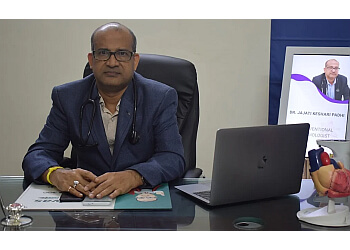Cardiology Evaluations: Prioritizing Heart Health

Prioritizing Heart Health: The Significance of Cardiology Evaluations
Cardiology evaluations play a crucial role in safeguarding heart health, providing insights into cardiovascular well-being, and facilitating preventive measures. In this article, we explore the importance of cardiology evaluations, the comprehensive nature of these assessments, and how they contribute to a proactive approach to heart care.
Understanding the Scope of Cardiology Evaluations: A Holistic View of Heart Health:
Cardiology evaluations offer a holistic view of heart health, encompassing a range of assessments to evaluate the cardiovascular system. These evaluations go beyond merely diagnosing existing conditions; they aim to identify potential risks, assess overall heart function, and guide individuals toward proactive measures for optimal cardiovascular well-being.
Routine Check-ups: Early Detection for Timely Intervention:
Routine cardiology check-ups form a cornerstone of preventive heart care. These regular assessments involve a thorough examination of blood pressure, cholesterol levels, and other key indicators. Early detection of abnormalities allows for timely intervention, enabling healthcare professionals to address risk factors and prevent the development of cardiovascular diseases.
Advanced Imaging Technologies: Visualizing Heart Structure and Function:
Cardiology evaluations often incorporate advanced imaging technologies to visualize the structure and function of the heart. Techniques such as echocardiography, cardiac MRI, and CT angiography provide detailed insights into cardiac anatomy, helping cardiologists assess the condition of the heart valves, chambers, and blood vessels.
Electrocardiograms (ECGs): Monitoring Electrical Activity:
Electrocardiograms (ECGs) are integral components of cardiology evaluations, monitoring the heart’s electrical activity. These tests detect irregularities in heart rhythm, identify signs of arrhythmias, and contribute to the assessment of overall cardiac health. ECGs provide valuable information that aids in the formulation of personalized treatment plans.
Stress Tests: Assessing Heart Performance Under Strain:
Stress tests are employed during cardiology evaluations to assess how the heart performs under strain. Whether through exercise stress tests or pharmacological stress tests, these evaluations help determine the heart’s capacity, identify coronary artery disease, and provide valuable information for risk stratification and treatment planning.
Blood Tests: Uncovering Insights into Cardiovascular Health:
Blood tests are an essential component of cardiology evaluations, uncovering insights into cardiovascular health. Lipid panels assess cholesterol levels, while other blood markers provide information about inflammation, cardiac enzymes, and overall heart function. These tests aid in risk assessment and guide preventive measures.
Blood Pressure Monitoring: Managing Hypertension Effectively:
Cardiology evaluations involve vigilant monitoring of blood pressure, a critical factor in heart health. Hypertension, if left untreated, can lead to serious cardiovascular complications. Regular blood pressure assessments during cardiology evaluations enable healthcare professionals to manage and control hypertension effectively.
Risk Factor Assessment: Tailoring Preventive Strategies:
Cardiology evaluations include a comprehensive assessment of individual risk factors for heart disease. This personalized approach allows healthcare professionals to tailor preventive strategies based on factors such as family history, lifestyle choices, and medical history. Addressing specific risk factors empowers individuals to take proactive steps toward heart health.
Cardiology Evaluations at oofamily.com: Empowering Heart Care Knowledge:
Explore the importance of cardiology evaluations and gain insights into heart health at oofamily.com. Our platform offers articles,











